Expand Your Mindfulness Skills,
So You Can Live Your Life More
Empowered and Relaxed
Increase Your Confidence and Reduce Stress
Wellness through Mindfulness Program
Step out of stress and back into life
With all the challenges of today’s world, many of us are living in a perpetual state of stress, anxiety, and uncertainty. And this worry can make us suffer physically, emotionally and spiritually.
On a physical level, our reactions to life can get stored in our body as tension, hypertension, headaches, or even chronic pain and illnesses. Typical emotional symptoms include feelings of burnout, depression, relationship difficulties, grief and loss. And on a spiritual level, you may crave a sense of more meaning and purpose in your life or long to find inner peace to carry you through this frantic world.
Thankfully, these difficult issues can be overcome.
Mindfulness provides proven techniques that can help reverse or reduce physical manifestations of stress. It can help you navigate work, save personal relationships and strengthen professional connections.
Just imagine experiencing a sense of control in your life, where you are aware of what is happening to you and are able to make decisions about how to respond in new and creative ways that seem possible right now.
What if you had the tools to align with your authentic self, untangle from unhelpful thoughts and emotions, and connect with your unique sense of purpose, meaning and passion?
Who can benefit from the Wellness through Mindfulness Course
The Wellness through Mindfulness Course can serve as an introduction to mindfulness for beginners or as a refresher for students of mindfulness and seasoned practitioners familiar with the foundational principles of mindfulness. It is based on the groundbreaking Mindfulness-Based Stress Reduction (MBSR) program developed by Jon Kabat-Zinn at the University of Massachusetts Medical School’s Center of Mindfulness in the 1970’s and Mindfulness-Based Cognitive Therapy (MBCT) developed by Mark Williams, Emeritus Professor at the University of Oxford with his colleagues John Teasdale (Cambridge) and Zindel Segal (Toronto,) building on the work of Kabat-Zinn.
This program uses a combination of mindfulness meditation, body awareness and mindful movement to explore your behavior, thoughts, feelings and actions. Mindfulness-Based Programs (MBPs) are highly respected within the medical community and the practices have been shown to be effective in the treatment of mental, physical, and emotional conditions.
Mindfulness is about being fully awake in our lives. It is about perceiving the exquisite vividness of each moment. [Through it,] we also gain immediate access to our own powerful inner resources for insight, transformation and healing.
—Jon Kabat-Zinn
What You’ll Learn in These Eight Lessons

Getting Out of Autopilot
Most of the time we live our life not thinking about what we do. Almost everything is done on autopilot. While there is a place for autopilot, we often rely on it so heavily that we don’t notice our internal signals that tell us that something is out of alignment.
We don’t listen to that inner voice trying to tell us that something doesn’t feel right. We dismiss signals like tension and pain —signs our body uses to communicate that something is off in our life.
Instead, we simply repeat reactions that we learned years or even decades before and re-live the same disappointing result. Interrupting the autopilot is crucial if we want to reduce stress in our life and the simplest way to do that is to consciously intervene through mindfulness.
In this week, you’ll learn to:
- Understand the concept of mindfulness.
- Recognize learned behavior and differentiate it from your body talking to you.
- Get back into the present moment, steady the mind, and experience the control you can gain when you focus your attention on what you’re actually experiencing in the moment.
- Practice a simple technique to interrupt your mind’s autopilot.

Exploring and Re-Engaging the Mind/Body Connection
Our body is a powerful instrument to connect us with what we are experiencing in our life at any given moment.
You can harness it as your own personal internal guidance system and learn how to read your body’s “early warning stress signals” to manage situations long before they actually become a problem.
Engaging our mind/body connection allows us to respond to life’s challenges with increased choice.
In this week, you’ll learn to:
- Explore the mind/body connection and become aware of the power of your body.
- Reconnect to the continuous exchange that your mind and body are engaged in.
- Distinguish the signals that your body is sending to pick up vital information.
- Practice the powerful exercise of a body scan as a tool to recognize the signals of your body.

Expanding Awareness of Your Habitual Patterns
You may be familiar with the phrase “perception is everything” – how we look at certain situations in our life determines what we “think” we are able to do about them.
And, the more we perceive situations as stressful, the more they will cause us stress in return. To get out of this vicious cycle, this week will allow you to become aware of your habitual reactions.
You’ll start to recognize your common patterns and how some of these actually limit your choices of responding.
In this week, you’ll learn to:
- Take an inventory of your current situation and the patterns that limit you in finding solutions.
- Stretch beyond your current limits due to learned behavior and instead open up to more options of possible responses to life’s challenges.
- Practice increased awareness of your current patterns and expand your perception of possibilities.
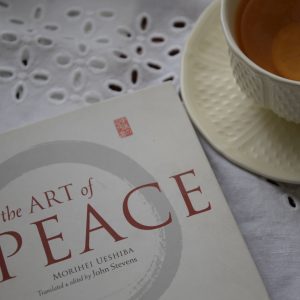
Developing Skills to Respond to Stressful Situations
Stressful situations bring with them difficult thoughts and feelings, something that we’ve usually learned to ignore in order to simply function in the world.
For us to develop new creative ways of responding to stressful situations, we need to be able to be with the unwanted thoughts and have the capacity to be aware of what is actually happening in the present moment, even if it is unpleasant.
This week will be dedicated to developing skills that enable you to being more relaxed while looking at difficult thoughts and feelings in your life.
In this week, you’ll learn to:
- Understand what is stress reactivity, what happens in your body, and why you react the way you do.
- Slow down and give yourself the moment of pause that allows you to interrupt old patterns.
- Practice noticing the things that trigger you and realizing that you really do have a choice of how to respond.

Increasing Your Ability to Generate Creative Solutions
A stress reaction to any kind of situation is an automatic chemical reaction in the body that happens when you “feel” threatened.
It’s an example of how connected the mind, body, and emotions are. After the last 4 weeks of practices, you may be more aware of what’s happening in the body and therefore better able to work with it from moment to moment.
This is also the time to take a deeper look at any negative thoughts that are part of your conditioning, old patterns of perception and reactivity to stress and clearly see that there’s nothing “wrong” with you!
In this week, you’ll learn to:
- Put all the practices from the previous weeks together and use mindfulness to respond when you are confronted by stressful situations.
- Find creative solutions to stressful and emotional situations – those situations in life where you can’t find solutions by “thinking it through.”
- Practice bringing awareness to difficult situations and responding in ways that allow you to gain control over the induced stress.
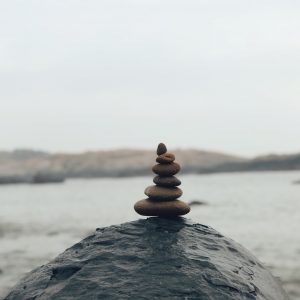
Celebrating Your Personal Power and Confidence
Resilience is a measure of how quickly you bounce back from stressful situations. Increased resilience makes it easier to recover from stressors and to shift into a place of choice, so you can respond based on what is actually going on.
Re-discovering that choice for yourself allows you to reconnect with your inner sense of personal power. It also increases your confidence as you experience getting more in control of your life.
We will focus this week on learning how to recognize when you go into stress reactivity and how to bounce back into a state of choice.
In this week, you’ll learn to:
- Differentiate between your old habitual reactive mode versus being in a state of response that increases your choices.
- Build your resilience by recognizing your early signs of stress and how to return to a state of response when you do get caught up in it.
- Practice your ability to bounce back from a stress reaction in a safe space, so you’re ready when the real thing comes your way.
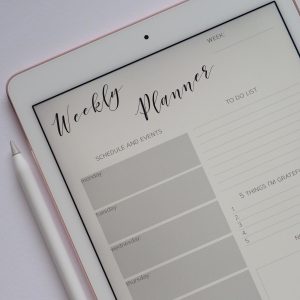
Exploring Self-Nourishing Lifestyle Choices
Only you know what is currently happening in your life and how mindfulness and mindful practices can best support you.
This is the time in the program where you will make skillful choices about your personal lifestyle in a way that is adaptive. This supports your being able to adapt as things change. And it gets you in the habit of self-nourishing, preparing you to continue the journey towards a more relaxed response to life long-term.
During class you will design a practice for the week that is tailored to you and in alignment with what is happening in your life right now.
In this week, you’ll learn to:
- Design your own practice for the coming week based on your current needs.
- Practice skills learned so far in the program that have the most value to you and deepen your experience.
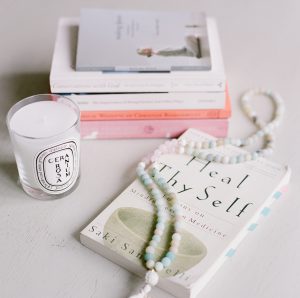
Establishing Mindfulness into Your Day-to-Day Life
Mindfulness is a practice and in order to access its power in moments of stress, we need to continuously build and maintain the mental muscle during peaceful moments.
When crisis arises, you want to be ready, not getting ready! It’s therefore absolutely essential to weave mindfulness into your daily life, so you can maintain the momentum developed during the program.
We will take a look at the various tools and techniques that you’ve learned over the last 7 weeks and explore how you will incorporate these practices into your day-to-day life even further.
In this week, you’ll learn to:
- Keep the momentum and learn about additional ways and resources to practice mindfulness.
- Establish your own plan on how you will incorporate mindfulness practices into your everyday life going forward.
- Practice all the tools and techniques learned throughout the program.
What You’ll Receive in the Program
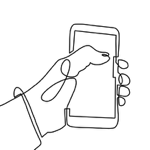
Eight Video Recorded Mindfulness Training Sessions with Pamela
Learn the well-respected methods developed by Jon Kabat-Zinn at the University of Massachusetts Medical School’s Center of Mindfulness and expanded upon by Oxford professor Mark Williams.

Eight Weekly Homework Assignments
Each week’s assignment build one on the other. You will be assigned weekly home practices. They include formal and informal meditations, journaling, mindful movement and more. All serving to weave an enhanced awareness into your life.
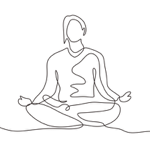
Recorded Mindful Focused Guided Meditations
The recorded meditations provide instructions in mindfulness meditation practices and range in duration from 8 minutes to 45 minutes. While there are many meditation traditions with different objectives, these meditations were specifically chosen to support the process of putting you back in control of your life. They include sitting meditations, mindful eating, mindful movement, and others.
What You’ll Need to Be Successful
All you need to do is show up and be willing to do the work. Each class focuses on a particular theme that builds on the prior session. Though the program is self-paced, we recommend that you keep the momentum and go through it in 8 weeks. You can always come back and review any of the weeks to deepen your understanding and practice.
Although the self-study allows you flexibility in your scheduling, for best results you must be willing to make a strong commitment to watch all the class videos and to follow the daily home assignments for eight weeks.
Your Teacher, Pamela J. Alexander
Pamela graduated from the University of California, Berkeley and received her Mindfulness-Based Stress Reductions Teacher’s credentials from University of Massachusetts Medical School’s Center for Mindfulness in collaboration with the Brown University School of Public Health.
Pamela is a teacher, but first and foremost, she is a practitioners. As a practitioners, she actively engages in the art of living mindfully. She continually explores and expands her understanding and felt experience of mindfulness, both through formal education and life. And she shares that with you, meeting you wherever you are on your journey.
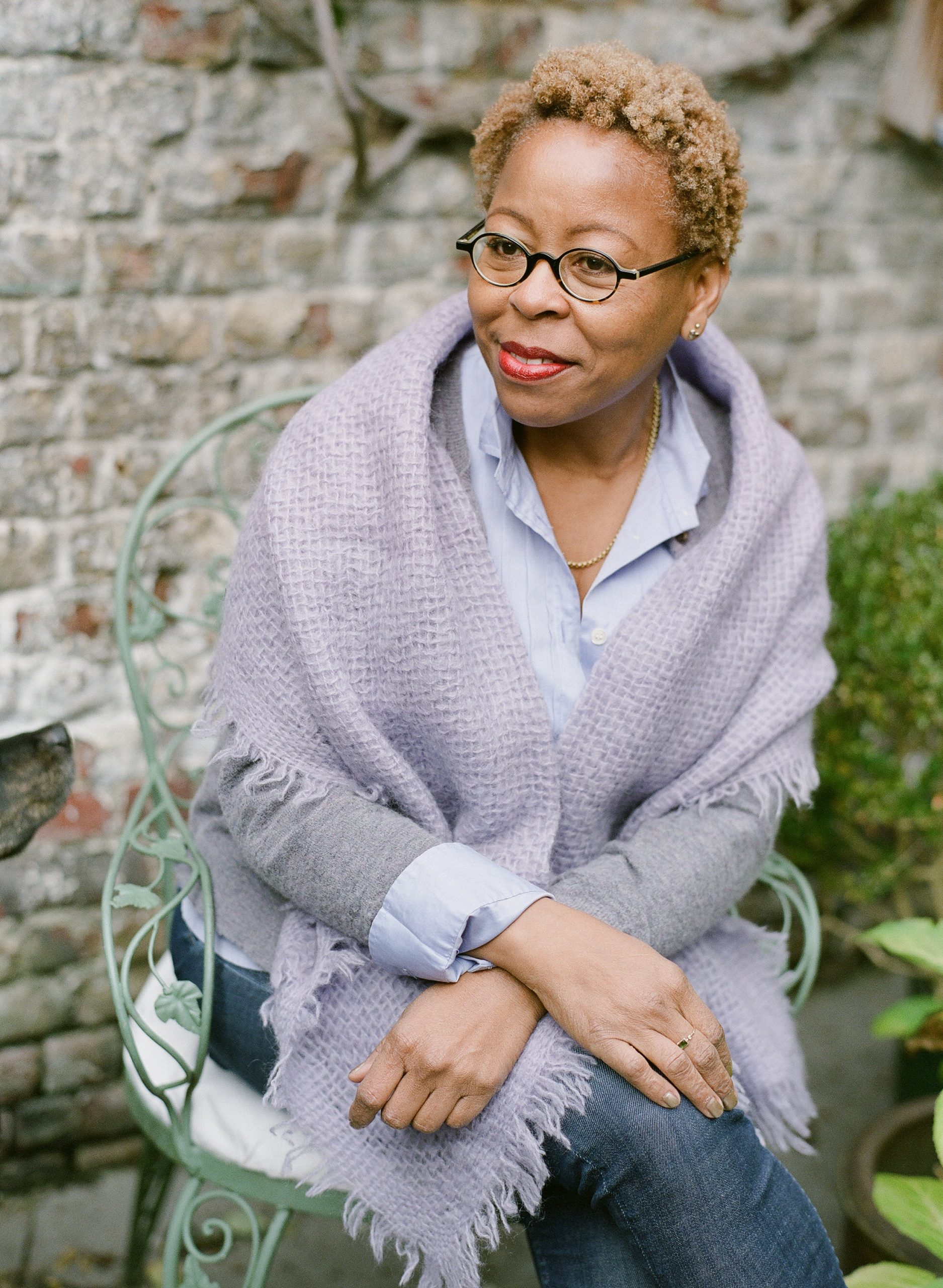
Testimonials
In working with Pamela and following her work, I’ve noticed that mindfulness is more than an exercise of self-awareness but a passion and lifestyle.
Pamela gets it. She has an innate ability to reframe challenges into opportunities and break down the mountains. With her coaching, this crazy journey is much more enjoyable.
Invest in Your Peace of Mind
If you’re ready to take the next step to feel more empowered, inspired by life, and celebrating your own inner wisdom, click the register button below and start your journey.
